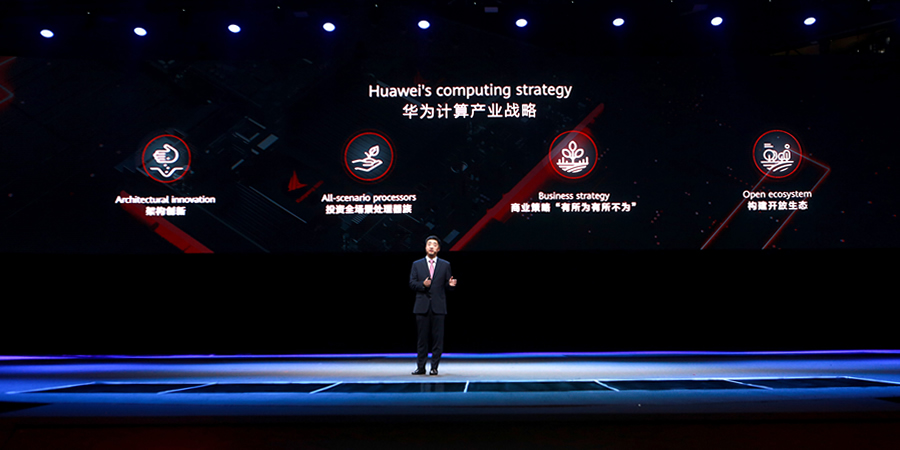"The future of computing is a massive market worth more than two trillion US dollars," said Ken Hu, Huawei's Deputy Chairman. "We'll keep investing with a strategy that focuses on four key areas. We will push the boundaries of architecture, invest in processors for all scenarios, keep clear business boundaries, and build an open ecosystem."
The industry's approach to computing is evolving from rule-based to statistical models, which are the foundation of machine learning. Huawei estimates that in the next five years, statistical computing will become the mainstream and AI computing will account for more than 80% of all computing power used around the world.
To carve out a place in this market, Huawei's strategy will focus on four key areas:
- Architecture innovation. Last year Huawei launched the Da Vinci architecture, an innovative processor architecture designed to provide a steady and abundant supply of affordable computing power. Huawei will continue to invest in basic research.
- Investment in all-scenario processors. Huawei has a full lineup of processors: Kunpeng processors for general purpose computing, Ascend processors for AI, Kirin processors for smart devices, and Honghu processors for smart screens.
- Clear business boundaries. Huawei won't sell its processors directly. Instead, it will provide them to its customers in the form of cloud services, and to its partners in the form of components, prioritizing support for integrated solutions.
- Building an open ecosystem. In the next five years, Huawei will invest another US$1.5 billion in its developer program. The aim is to expand the program to support five million developers and enable Huawei's worldwide partners to develop the next generation of intelligent applications and solutions.
Building on the technical strengths that Huawei has developed over the past decade, Atlas 900 combines the power of thousands of Ascend processors. It takes Atlas 900 only 59.8 seconds to train ResNet-50, the gold standard for measuring AI training performance. This is 10 seconds faster than the previous world record.
Atlas 900 is a powerhouse of AI computing, and it will bring new possibilities to different fields of scientific research and business innovation – anything from astronomy, weather forecasting, and autonomous driving, to oil exploration. Huawei also deployed Atlas 900 on Huawei Cloud as a cluster service, making extraordinary computing power more broadly accessible to its customers across different industries. Huawei has offered these services at a great discount to universities and scientific research institutes worldwide.
Gao Wen, a Member of Chinese Academy of Engineering and Director of Peng Cheng Lab, also spoke at this year's event. He shared the mission and vision of Peng Cheng Lab and how the organization will work with Huawei to build China's first evolving AI supercomputing system that supports exascale computing. The two companies will work together to establish a new generation of platforms for AI basic research and innovation.
Zheng Yelai, President of Huawei's Cloud BU, talked about how AI can be applied in different scenarios. Based on Huawei's experience in over 500 projects across more than 10 industries, Zheng pointed out that industry AI is crossing the commercial chasm and becoming the key driver for reshaping how companies go digital.
"This is a new age of exploration," Ken Hu concluded. "An ocean of boundless potential is waiting, but just one ship won't cut it. Today we launch a thousand ships. Let's work together, seize this historic opportunity, and advance intelligence to new heights."
HUAWEI CONNECT 2019 is an annual flagship event hosted by Huawei for the global ICT industry, and is held in Shanghai from September 18 to 20, 2019. This year’s Conference is themed on "Advance Intelligence" and aims to establish an open, cooperative, and shared platform for customers and partners to explore new opportunities for an intelligent future.










